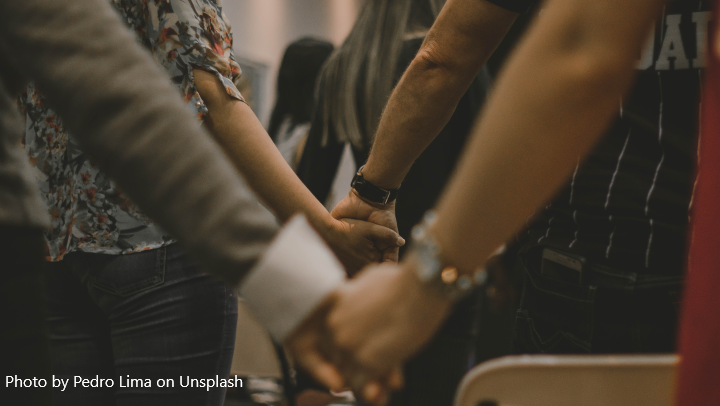Over the past several weeks, as Russian forces have continually and increasingly inflicted violent attacks against Ukrainian military, infrastructure, and civilian targets alike, the world has taken notice. National and international media have tirelessly broadcast updates hour by hour since the conflict escalated and spread throughout nearly all of Ukraine. Governments from the America, through Europe, and even some Asian and Oceanic countries have scrambled to quickly impose sanctions on Russia and to offer assistance to Ukraine. A global outpouring of prayer and resources unlike any we have seen in recent memory is underway to provide support for Ukrainian refugees.
In my own congregation and community in eastern NC, I have been asked numerous times “What can we do to support the people of Ukraine?” We have sent funds through UMCOR to support Ukrainian refugees. As we offer our prayers in worship, Ukraine has been earnestly prayed over every week thus far. To be clear, I think this current outpouring of Christian love is a wonderful thing. As a pastor, I want to encourage all generosity. But increasingly I have wondered why this event has elicited such a tremendous response while so many others seem to warrant only a collective shrug of the whole world’s shoulders.
Hundreds of thousands of civilian refugees from wars in Yemen, Syria, and elsewhere in the Middle East have been met mostly with indifference or outright hostility. In Ethiopia, nearly a million civilians have faced starvation for months on end as brutal war continues. In Afghanistan the return of the Taliban along with the loss of all western aid has become a humanitarian crisis rivaling anything to be found elsewhere. In Myanmar and China, flat out genocide has been underway against members of the Rohingya and Uyghur people groups, respectively. Yet, most of our hearts have not been troubled. Why?
Is Ukraine a special case? Perhaps we could make the argument that there are factors at play in Ukraine which demand our special attention. Not least among these is the fact that Ukraine seems to be increasingly pulled back and forth between nuclear armed global superpowers. But beyond the geopolitical struggle for global domination or destruction, I have heard it said of Ukrainians that “They look just like us,” and I have wondered how and why that feels so important.
To be clear when I say “They look like us,” I am not suggesting that all Americans are as fair-skinned and straight-haired as most Ukrainians are, and neither am I suggesting that only white Americans are feeling a disproportionate level of concern. Yet I would strongly suggest that part of our shock and sympathy at Ukrainian suffering is shock at seeing the suffering of people who, according to ideas deeply ingrained within all of us, simply look like their lives truly matter.
I offer no concrete solutions to what I suggest is a global problem. But is European suffering truly more tragic than African or Asian suffering? I think this is an important question for each of us individually to consider and reflect upon, and I think this is a question that also hits much closer to home. If we are indeed seeing a world where some suffering matters more than others, that surely translates to our own communities also. Simply stated, I believe it matters who we notice, who we care about, and who we don’t. I especially thank God for care extending far beyond those who “look like us.”
Prayerfully,
Steve Dunn
Pastor
Farmville UMC

